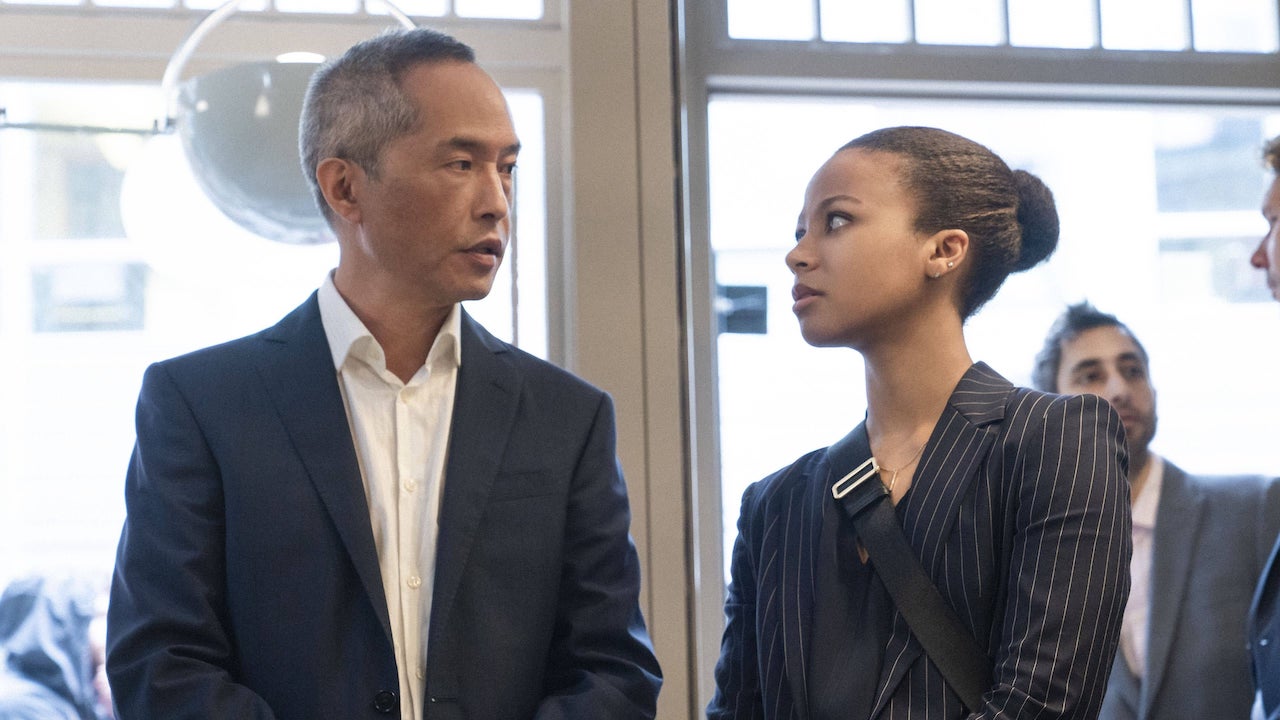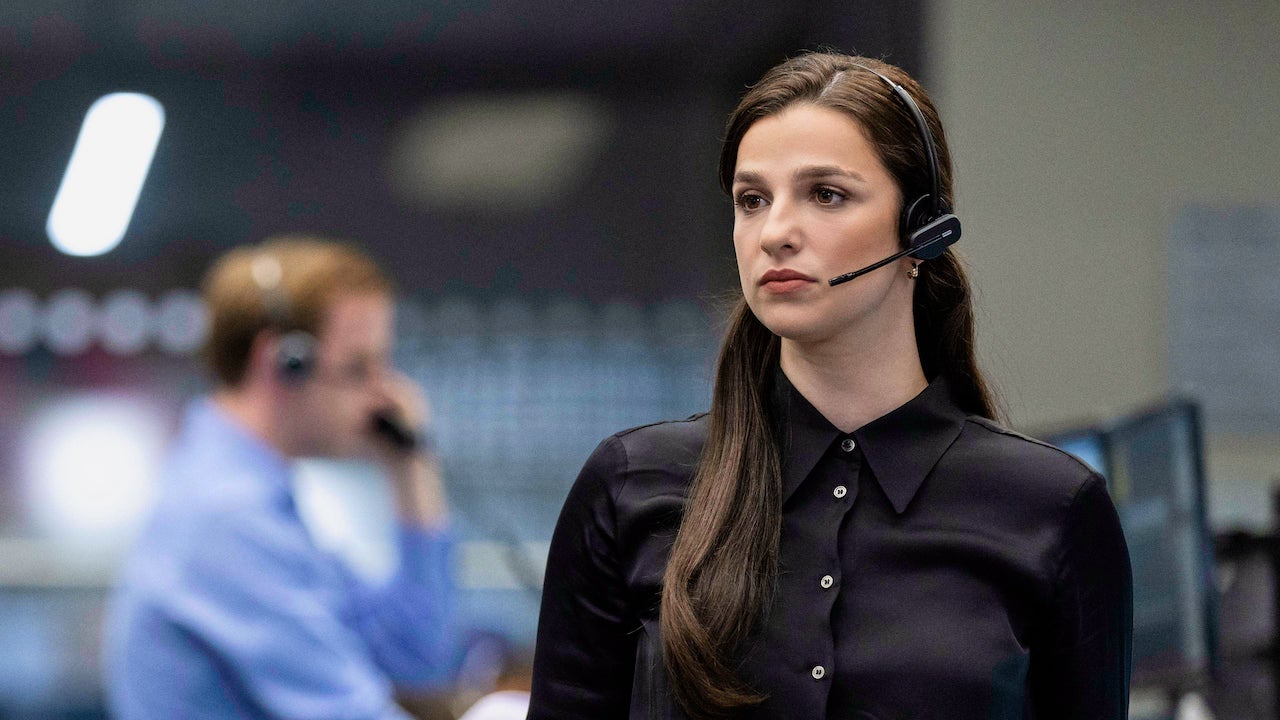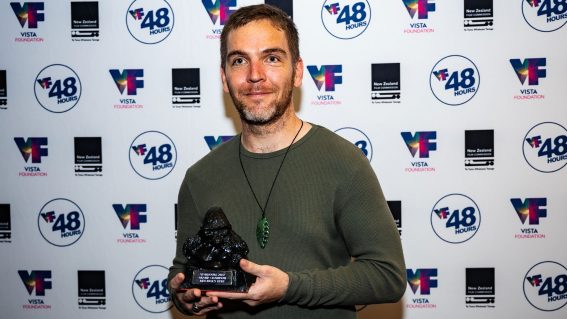Clarisse’s Show of the Week: You don’t need to understand financial jargon to get obsessed with Industry
We’re never quite sure what’s going on in the high-stakes trading of this HBO show, but the merciless characters bring us back.

We’re all drowning in content—so it’s time to highlight the best. In her column, published every Friday, critic Clarisse Loughrey picks a great new show to watch. This week: season 2 of Industry, a brilliantly tense show often compared to Succession but without the Schadenfreude, Loughrey says.
“We’re all c**** here, so let’s just lean into it, you know?” Industry’s heiress-turned-investment banker Yasmin (Marisa Abela) tells her colleagues. It may as well be the show’s tagline. HBO’s underrated drama series revels in despicability—in knives in backs and pointed stilettos in eyes, as the self-serving profiteers of the fictional Pierpoint & Co clamber over each other in order to reach the top. But this is no pretender to Succession’s throne.
These shows may easily hold both our desire and contempt for elite society in one hand, yet Industry is a much sadder, crueller invocation. It finds real sympathy with the worst of the worst without absolving them of their sins.
A lot of that tone has to do with the weight of consequence the show bears. And there’s plenty of consequence on display in season two. Harper (Myha’la Herrold) is still licking her wounds after so ruthlessly betraying the mentor (Freya Mavor’s Daria) who tried to nurture her career and fix the misogynistic toxicity of her workplace. Harper’s been using the pandemic as an excuse to hide away in a hotel room. But the culture has shifted, and there’s now little choice but to return to the sales floor. When rumours abound that only one of the company’s London and New York branches is destined to survive, the desperation to conquer has reached a fever pitch.
But, in truth, Pierpoint comes across a little like an inferno trapped in a snow globe—all that big money and those big deals lose their potency outside the bounds of a corporate office. One of the season’s many-stranded plotlines deals with a pharmaceutical company with ties to the NHS. The only time the fate of ordinary people is ever taken into account is when one corporate honcho, Anna Gearing (Elena Saurel), fights to lower its US price points—not because it’s the right thing to do, but because it would count as a “moral investment” for her clients. Whatever that means. Harper crosses paths with a financial golden goose in the form of Jesse Bloom (Jay Duplass), an American investor who made billions during the first months of the pandemic by deliberately crashing the market for his own gain.
What’s so striking about Industry is that there is, in fact, little of the satisfying schadenfreude of Succession to be sought here. It’s delicious, yes, when these characters lob insults at each other—Harper and Yasmin coolly greet each other in the women’s bathroom, before muttering the words “bitch” and “c***” under their breath as they finally part. But there’s no cringe factor here. No car-crash raps penned to daddy. No pathetic beseechments.

“The bit that makes sense about this job is living it,” Harper’s boss Eric (Ken Leung) doles out as a piece of advice. And he really means it—there’s absolutely no division between work and life at Pierpoint. In on scene, Harper washes ejaculate off her stomach in the bathroom, while simultaneously making a business call to Jesse. It’s difficult to separate what about her is the front she puts on for clients—measured, enigmatic, confident—and what about her is the unvarnished truth. Herrold does a formidable job of creating an engrossing, emotionally grounded character who’s all performance. The same is true for her co-stars.
There’s really no room for the “you” in a space of such cacophony. Industry is a loud, loud show, where even the pauses between lines are often filled with voices squalling away in the background. While a boardroom standoff plays out on screen, you might hear an offscreen voice cry: “I am going to f***ing cut you open and climb inside you”. I wonder what that’s about. Even alone in her flat, Harper still has to listen to her neighbours fight. You start to get the sense that all these deals and all this coke and all this sex (and there is a lot of sex in Industry) exist just so these characters never have to taste their own loneliness.
For this second outing, creators Mickey Down and Konrad Kay have added a few fascinating, combative new elements to the mix. There’s Venetia (Indy Lewis), the new girl at the Foreign Exchange Sales Desk, whose basic sense of boundaries and self-respect rattles Yasmin to the core. Had she never considered that there was a way to do this job without completely degrading oneself? There’s also a real focus on family this time around—or, more accurately, the lack of family, since these people are all orphans in one way or another. Yasmin attempts to reconnect with her dad (Adam Levy) by encouraging him to transfer his financial affairs over to Pierpoint.

Is she exploiting a blood connection or simply trying to get his attention? Is it a bit of both? Robert (Harry Lawtey) seems to fall to pieces the moment he actually has to speak to his father and be reminded of his working-class roots. Meanwhile, Yasmin grows close to Celeste (Katrine De Candole) a private wealth manager who she initially mistakes for a sex worker, so pleasure-minded is she in her business approach. Robert works closely with Nicole Craig (Sarah Parish), a client whose pattern of sexual misconduct is continually ignored.
A lot has already been said about how mystifying the financial jargon of Industry is. To be honest, I was never quite sure what anyone was talking about at any given moment—and yet I could still feel the hairs pricking up at the back of my neck every time someone started clacking away on their keyboard. A deal! I have no idea what kind, but it must be important since everyone’s sweating so much! It’s hardly a knock on Industry that its characters might as well spend each scene barking at each other like dogs. It’s like watching a nature documentary about mating rituals, with all those puffed-up chests and splayed feathers. And that’s exactly how I like it






















